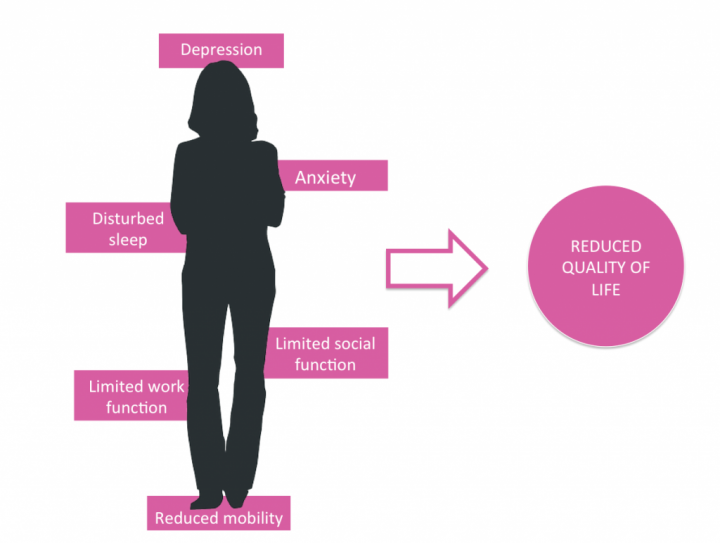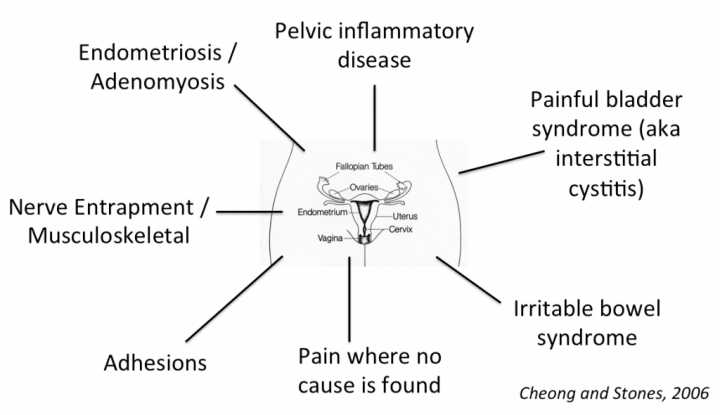Persistent pelvic pain
What is persistent pelvic pain?

Pelvic pain is any pain in the lower abdomen or pelvis. Long-term pelvic pain is pain that persists for at least three months. This type of pain is often called persistent or chronic pain.
It is important to distinguish between acute and persistent pain.
Acute pain is a short-term pain and serves as a warning of disease or a threat to the body. Acute pain might be caused by various events or circumstances, including a tooth abscess or a broken bone. Acute pain tends to disappear when the underlying cause of pain has been treated or has healed.
Persistent pain is long-term pain which continues for longer than 12 weeks, or after the time that healing would have been thought to have occurred in pain after trauma or surgery (British Pain Society, 2008). Long-term pelvic pain is common. It affects around one in six women (Royal College of Obstetricians and Gynaecologists, 2006).
Persistent pelvic pain is linked to numerous problems that can lead to a reduced quality of life.

Scientists are learning more about the mechanisms of persistent pain and it is a complex system! The ‘Patient Information’ section of this website explains about different conditions linked to pelvic pain. We also know that often a combination of physical, psychological and/or social factors are relevant in understanding pain. This does not mean that the pain is “in your head” or not real. The patient information sheet “Understanding Pain” tells you more about the science of persistent pain:
The EXPPECT Pelvic Pain Team aims to work in partnership with women to help them better understand their pain and discuss a treatment and management plan.


